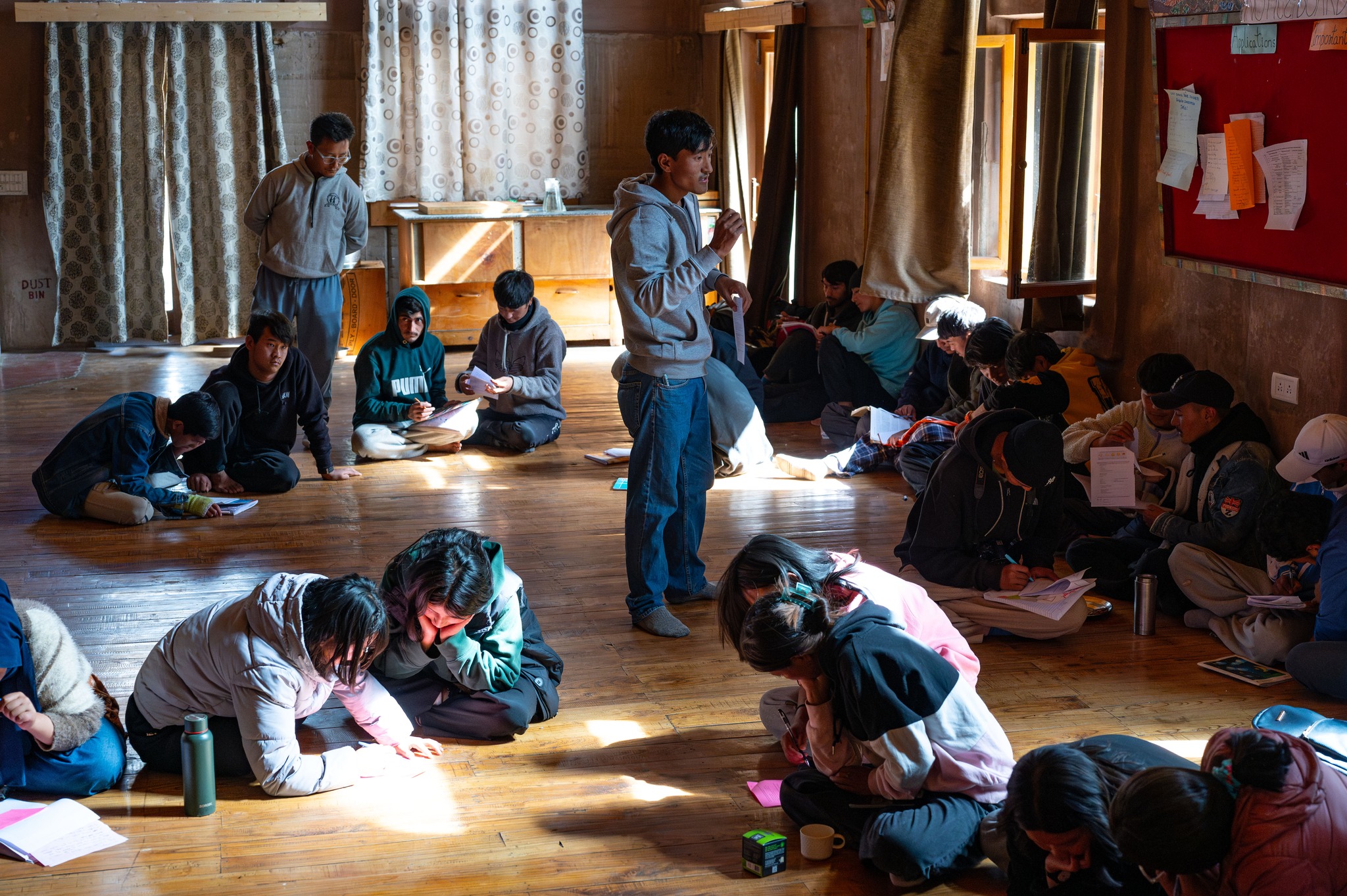Project 11: Transforming mental health narratives in remote Himalayan communities
January 5, 2024 11:58 am
In the remote region of Ladakh, nestled between the towering Karakoram and Himalaya Mountain systems, lies India’s highest, coldest and driest district. Many remote villages, with elevations reaching 12,000 ft (Winnipeg 784 ft), lack electricity, and the semi-nomadic people who are living there rely on livestock – yak, sheep, goats and cattle – for almost all their needs.
During the pandemic, Ladakh’s children were stranded in an on and off again hiatus from school leaving them isolated in their remote communities for two and a half years.
“Our kids weren’t allowed to gather in small social groups of more than six, and it had a huge negative impact on their mental health. Kids felt forgotten, and we wanted to help restore that,” shared Cynthia Hunt, a founder of Health Inc. in Ladakh. “I stumbled upon Project 11 online and reached out; they responded right away, were willing to connect online and immediately asked ‘how can we help?’”
Project 11 (P11) is a school-based mental wellness program originally created for Manitoba youth to cultivate healthy coping skills and mental health awareness. Recognizing a broader need beyond Manitoba, P11 evolved beyond its initial scope to meet the need in other provinces and even in communities outside of Canada.
In 2020, Hunt and her team began introducing P11 to youth within the Ladakh community. Lessons were translated into the local language and worksheets were tailored to be more relevant to Ladakh’s unique cultural context. Their unique P11 materials found their way into COVID outreach programs, where they were instrumental in creating an emotional shift among residents in Ladakh’s surrounding communities.
With the curriculum available from early to senior years, Hunt and her team strategically started with Grade 10 programming.
“We thought maybe if we could impact some of our older youth leaders, they would be able to share some of these concepts with the younger kids in their communities,” said Hunt who added that impacts on students’ well-being were soon evident.
“Students found it intriguing that they had the power and tools to deal with mental wellness themselves,” shared Hunt. “And we saw this impact the hopelessness felt in villages, helping kids heal from the pain of feeling forgotten.”
Hunt and her team started the programming sharing the story of Rick Rypien, a Manitoba Moose/Jets player who inspired the creation of Project 11 after losing his own battle with mental health.
“Sharing Rick Rypien’s story put all the kids at ease as they initially thought the conversation was about hockey, not the taboo subject of mental health,” said Hunt. “After the kids were engaged, we started focusing on stress – ways to destress and what were the cause of their stressors, and the conversations from that were amazing.”
To deepen their understanding of how P11 is integrated into Kindergarten to Grade 12 curriculums, Hunt and her team recently spent five weeks in Winnipeg with the P11 team. During their time here, they visited P11 classrooms observing the curriculum in action and shared their story with students. they also took in local culture and attractions, getting the full flavour of the city before heading back to evolve and expand P11 in Ladakh.
“Seeing how the program fosters an environment of inclusivity at all of our school visits, and for us to see students feel empowered to articulate their emotions and share their challenges has significantly contributed to our vision. By incorporating mental health training, lessons, and resources provided by Project 11, we aim to further extend these valuable resources into our villages.”
While Hunt and her team had many valuable takeaways from their five weeks in Winnipeg, the time spent together was equally rewarding for the P11 team.
“At a time when so many parts of the world are in conflict, this is a great way for us to provide our P11 students here in Manitoba with the opportunity to build understanding and connection with folks from another part of the world,” said Suzi Friesen, True North Youth Foundation Director, Educational Programs.
It was a two-way learning experience with P11 students learning about the Ladakh community, including thecultural importance of music and food harvesting, and the collaborative effort behind creating inclusive spaces like ice rinks.
“We are genuinely humbled and honoured that our program is making a positive impact on people around the world,” said Friesen. “P11 hopes to be a great resource to all who need it, seeking to replace a narrative of avoiding mental health conversations with one of hope and resilience. We are so grateful that individuals are choosing to prioritize their mental wellness, recognizing that instilling these values in the next generation is where meaningful change begins.”
To learn more about the impacts of P11 programming, visit ProjectEleven.ca.
